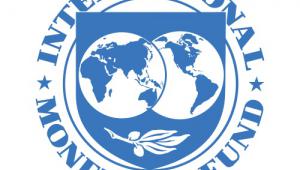Until now IMF policy has barred it from providing financing to a country that was in arrears with its official bilateral creditors, apart from in certain specific circumstances.
But the IMF said that the “changing landscape for official finance” warrants a rethink of those circumstances and the non-toleration of arrears which will benefit creditors, debtors and the international system at large as well as result in more efficient resolution of sovereign debt crises.
The two circumstances under which the IMF would previously lend to countries in arrears with their creditors were when a restructuring agreement in the Paris Club – a longstanding forum of official bilateral creditors – was in place or if that was not the case, when each creditor had consented to the financing.
However, in 2013 IMF staff noted that a wider range of countries were now providing official finance to other sovereigns that are not members of the Paris Club, such as China, Brazil, India and Saudi Arabia. These creditors now provide the majority of new financing in some parts of the world.
As a result, in some cases Paris Club members only account for a minority of the creditors providing bilateral assistance and reliance on the club is therefore not always appropriate.
In addition, the IMF noted that previous policy enabled a bilateral creditor to block IMF assistance by not consenting to restructuring, which could result in bigger losses for all creditors and the international financial system as a whole.
The fund will continue to rely on Paris Club agreements if creditors that are members are adequately representative, and said it will consider a similar arrangement with another similar forum if one should emerge.
However, if not and collective agreements or agreements with individual creditors cannot be reached, the fund will still consider lending when certain creditors are unwilling to reach an agreement that is supported by the majority of other creditors.
This will be dependent on certain criteria, including the “good faith” of the debtor, something which will be judged by its efforts to engage in dialogue and seek agreement, and its provision of information in a timely manner.
The IMF’s executive board said, overall, the new policy will better facilitate the provision of support that minimises creditor losses and maintains the debtor’s ability to repay.













